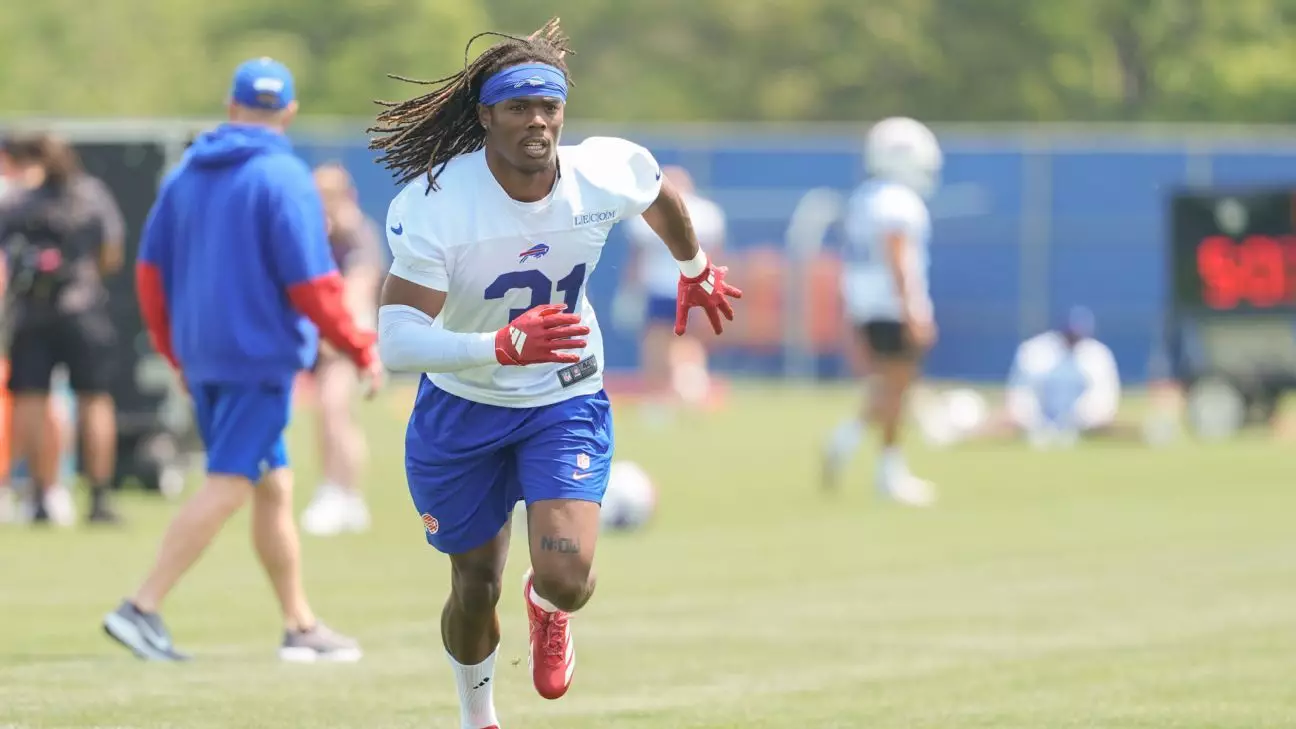When allegations of sexual assault emerge, they often shatter the lives of those involved, revealing painful truths that society cannot afford to ignore. The case of Rebecca Hendryx, who accuses NFL hopeful Maxwell Hairston of assaulting her in 2021, exemplifies the complex intersection of personal trauma, institutional response, and societal apathy. Her decision to come forward by reporting the incident reflects incredible bravery, yet the subsequent handling of her case exposes deep flaws within our systems of justice and accountability. It is crucial not only to listen to survivors but also to scrutinize how institutions, ranging from law enforcement to sports organizations, respond to such serious allegations.
The Unquestionable Need for Transparent Investigations
One of the most troubling elements of Hendryx’s story is the apparent gap between her report and the lack of clear resolution. Despite her prompt reporting to police, no record of her allegations appears in official law enforcement databases, raising questions about the thoroughness and transparency of investigations. This ambiguity often discourages victims from pursuing justice, fostering an environment where silence becomes normalized and perpetrators remain unchallenged. The role of organizations like the NFL and university authorities becomes even more critical in ensuring that allegations are taken seriously, investigated diligently, and that survivors are supported throughout the process. Their credibility hinges on whether they prioritize justice over reputation, especially when allegations involve high-profile individuals.
The Culture of Denial and Its Dangerous Consequences
The response from the Buffalo Bills’ front office and other stakeholders exemplifies a troubling tendency to dismiss serious accusations, often pointing to previous investigations or character references to minimize the allegations. Claims that Hairston was “an impeccable kid” after an alleged incident suggest a default inclination to protect star athletes rather than value truth and justice. This protective attitude perpetuates a dangerous culture that dismisses survivors’ voices and enables a cycle of dismissal and disbelief. It is incumbent upon organizations, particularly in high-stakes environments like professional sports, to foster an atmosphere where accountability is prioritized over image, and where survivors feel empowered to speak without fear of retribution or further harm.
Societal Responsibility and the Path Forward
Allegations of sexual assault are more than isolated incidents; they are symptomatic of broader societal failures in understanding, addressing, and preventing sexual violence. The silence around these issues emboldens perpetrators and erodes trust in institutions meant to protect. Proper action requires systemic change—comprehensive education, transparent legal processes, and unwavering support for survivors. As a society, we must question our collective complicity and push for reforms that make clear: accountability is non-negotiable. Only then can we hope to dismantle the culture of denial that allows assaults to be brushed aside and victims to be silenced or ignored.
Despite the unwelcome complexity or controversy they may evoke, allegations like Hendryx’s serve as vital catalysts for urgent reform. Our response must go beyond mere words—demonstrating real commitment to justice, empathy, and the protection of all individuals. Only through relentless scrutiny, reform, and unwavering support can we ensure that survivors are heard, believed, and ultimately vindicated.


Leave a Reply